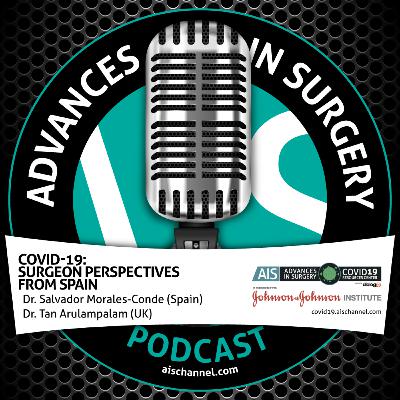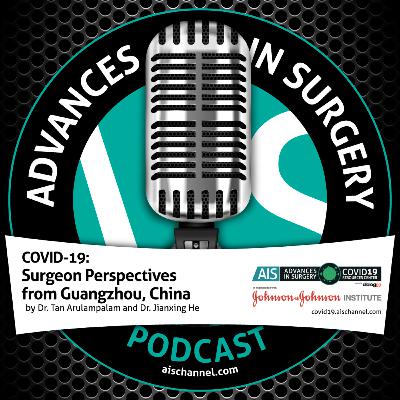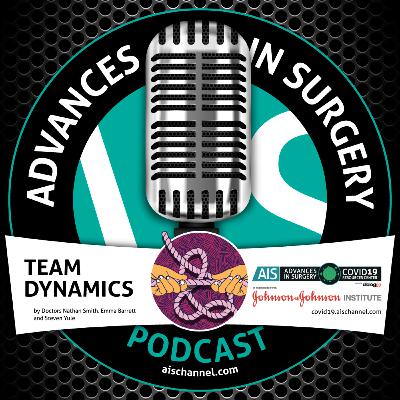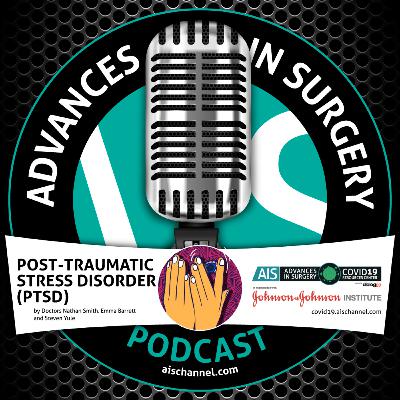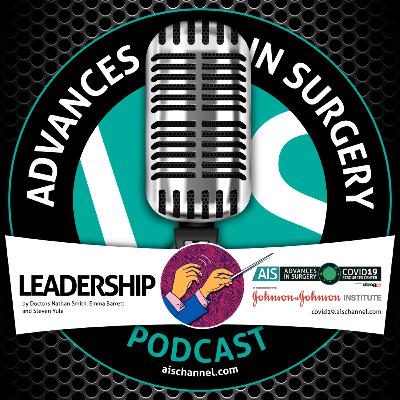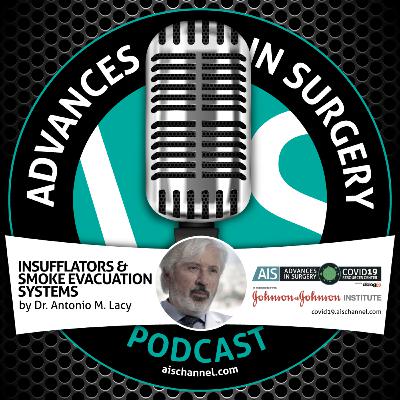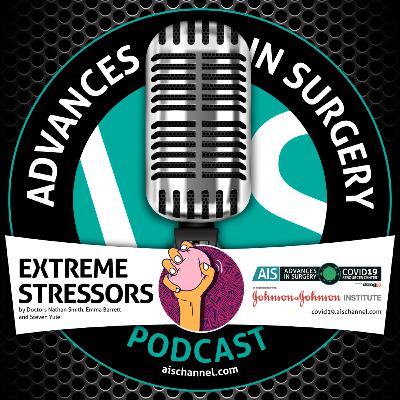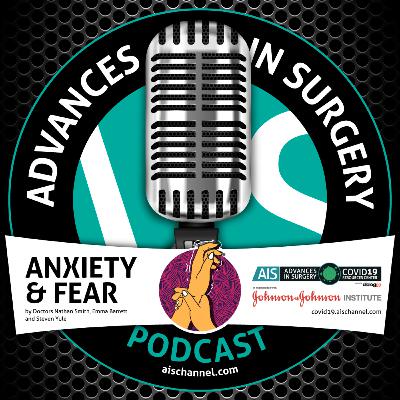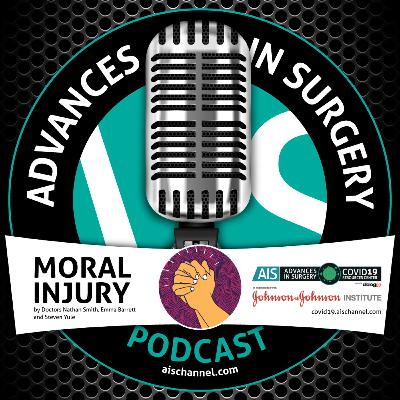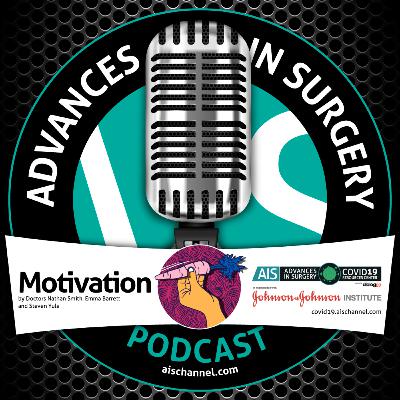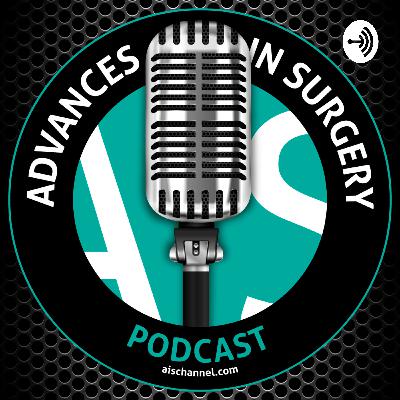Discover Advances in Surgery | Podcast
Advances in Surgery | Podcast

Advances in Surgery | Podcast
Author: Advances in Surgery
Subscribed: 15Played: 20Subscribe
Share
© Advances in Surgery
Description
Our mission is to offer universal access to excellent lifelong surgical training / learning shouldn’t be exclusive to a few privileged HCPs. Surgery has advanced more in the last 15 years than in the past 150 years, and only 3% of healthcare professionals in the world can keep up to date (due to time, resources and other restrictions).
At AIS we believe in facilitating free remote access to excellent surgical contents (synchronous or on demand) provided by the best international surgeons.
At AIS we believe in facilitating free remote access to excellent surgical contents (synchronous or on demand) provided by the best international surgeons.
33 Episodes
Reverse
COVID-19: Surgeon Perspectives from Spain
Dr. Salvador Morales-Conde (Spain)
Dr. Tan Arulampalam (UK)
In this podcast Dr. Tan Arulampalam interviews Dr. Jianxing He from Guangzhou.
Dr. He has faced the pandemic on the front lines of patient care in Guangzhou for the past months. Dr. He talks to Dr. Arulampalan about the evolution of the situation in Guangzhou.
Authors:
Dr. Tan Arulampalam and Dr. He
Source:
AIS | COVID-19 Resources Center powered by DialogEDU, in collaboration with Johnson & Johnson Institute
https://covid19.aischannel.com/
During the covid-19 response, workers from across the healthcare system (and beyond) will be called upon to fight the disease outbreak. Ensuring that staff are prepared and ready to work is important for being able to safely and successfully tackle the virus. Readiness is relevant to staff transitioning between home and work daily, those returning to work after self-isolating (potentially as a result of contracting the virus or showing symptoms), and those being drafted in to provide extra support.
Authors
Doctors Nathan Smith, Emma Barrettand Steven Yule
Intro / Ending
Dr. Manish Chand
Source:
AIS | COVID-19 Resources Center powered by DialogEDU, in collaboration with Johnson & Johnson Institute
https://covid19.aischannel.com/
COVID-19 workers are likely to work in dynamic teams, often with people they do not know and in high demand, variable resource settings. Optimising team performance can result in improved decision making, increased efficiency, higher adherence to safety standards, and more satisfying work relationships, which will contribute to tackling the disease outbreak.
Authors
Doctors Nathan Smith, Emma Barrettand Steven Yule
Intro / Ending
Dr. Manish Chand
Source:
AIS | COVID-19 Resources Center powered by DialogEDU, in collaboration with Johnson & Johnson Institute
https://covid19.aischannel.com/
COVID-19 workers are likely to witness a number of distressing scenes and be exposed to a range of potentially traumatic events. For some, this may contribute to the development of Post-traumatic Stress Disorder (PTSD).
Authors
Doctors Nathan Smith, Emma Barrettand Steven Yule
Intro / Ending
Dr. Manish Chand
Source:
AIS | COVID-19 Resources Center powered by DialogEDU, in collaboration with Johnson & Johnson Institute
https://covid19.aischannel.com/
Authors
Doctors Nathan Smith, Emma Barrettand Steven Yule
Intro / Ending
Dr. Manish Chand
Source:
AIS | COVID-19 Resources Center powered by DialogEDU, in collaboration with Johnson & Johnson Institute
https://covid19.aischannel.com/
Insufflation and smoke evacuation is one of the most hot topics in the surgical space during COVID-19 pandemic. Aerosol stability and dissemination depends on the surgical approach and the used devices.
In this podcast Dr. Lacy in this podcast Dr. Lacy summarizes the evidence published to date on the management of insufflation in laparoscopy and aerosols management in the surgical space gives some recommendations of surgical management during COVID-19 pandemic.
Author
Doctor Antonio M. Lacy
Intro / Ending
Dr. Manish Chand
Source:
AIS | COVID-19 Resources Center powered by DialogEDU, in collaboration with Johnson & Johnson Institute
https://covid19.aischannel.com/
In the line of duty, COVID-19 workers will encounter a number of extreme stressors or demands. These stressors/demands can impact upon an individual’s capacity to do their work. In highly interdependent teams, like those working in ICU, the impact of stressors/ demands at the individual level can have onward implications for the safety, performance, and health and wellbeing of others, including other staff members and patients.
Authors
Doctors Nathan Smith, Emma Barrettand Steven Yule
Intro / Ending
Dr. Manish Chand
Source:
AIS | COVID-19 Resources Center powered by DialogEDU, in collaboration with Johnson & Johnson Institute
https://covid19.aischannel.com/
"In tackling the COVID-19 outbreak workers will be faced with a lot of uncertainty and may, at times, encounter scary situations. This can lead to a sense of threat and result in feelings of anxiety and fear. A major source of anxiety and fear is likely to be related to the possibility of contracting the virus from sick patients."
Authors:
Doctors Nathan Smith, Emma Barrettand Steven Yule
Source:
AIS | COVID-19 Resources Center powered by DialogEDU, in collaboration with Johnson & Johnson Institute
https://covid19.aischannel.com/
"COVID-19 is placing significant demand on an already stretched healthcare system. Prioritisation of resources (e.g., staff, beds and ventilators) due to increased demand means that some patients may not receive the care that they would ordinarily get. When preventable loss of life occurs due to these reasons, healthcare workers may be at risk of moral injury."
Authors:
Doctors Nathan Smith, Emma Barrettand Steven Yule
Source:
AIS | COVID-19 Resources Center powered by DialogEDU, in collaboration with Johnson & Johnson Institute
https://covid19.aischannel.com/
"Responding to COVID-19 is going to require effort from workers over a prolonged period of time. This might span weeks, months and years. Ensuring that workers stay motivated is crucial for being able to provide effective care throughout the disease outbreak, and to protect their own psychological well-being."
Authors:
Doctors Nathan Smith, Emma Barrettand Steven Yule
Source:
AIS | COVID-19 Resources Center powered by DialogEDU, in collaboration with Johnson & Johnson Institute
https://covid19.aischannel.com/
During the COVID-19 outbreak front line workers are going to be exposed to a range of extreme demands and significant adversity. Resilience can help protect workers and enable them to maintain their performance, health and wellbeing during this time.
Authors:
Doctors Nathan Smith, Emma Barrettand Steven Yule
Source:
AIS | COVID-19 Resources Center powered by DialogEDU, in collaboration with Johnson & Johnson Institute
https://covid19.aischannel.com/
In the demanding field of surgery, leadership is vital for advancing medical practice and enhancing patient outcomes. This abstract outlines the journey of a young surgeon striving to achieve leadership roles within national and international surgical communities. The path is complex, requiring exceptional surgical expertise, strategic career planning, and meaningful contributions to the field.The young surgeon begins by building a robust foundation through rigorous training, mentorship, and ongoing skill development. Clinical excellence is paramount, complemented by research efforts that add new insights to surgery. Publishing in esteemed journals and presenting at conferences are critical for gaining recognition.To secure national leadership, the surgeon must engage actively with professional organizations. This involves taking on roles such as committee memberships, organizing educational initiatives, or advocating for policies that improve surgical standards. These efforts showcase dedication and competence, paving the way for influence within the national surgical landscape.For international leadership, a global outlook is essential. The surgeon should pursue opportunities like international surgical missions, contributions to global health programs, or collaborative research across borders. Participating in and presenting at international conferences boosts visibility and establishes credibility worldwide.Ultimately, attaining leadership in surgery transcends personal achievement—it’s a platform to shape the field’s future. Through innovation, mentoring emerging surgeons, and championing better surgical care, the young surgeon can leave a lasting legacy. This journey reflects a blend of skill, ambition, and commitment to improving surgery on both national and international stages.
In this episode of the AIS Channel podcast, Dr. Luis Felipe Cabrera Vargas interviews Dr. Herbert Chen, a prominent figure in academic surgery, to explore the meaning and responsibilities of presiding over a surgical association. Dr. Chen describes the presidency as a great honor, a recognition bestowed by one's peers based on contributions and demonstrated leadership. He posits that surgeons are natural leaders, accustomed to guiding teams in the operating room, patient care, and research, making the transition to an organizational leadership role a logical step. The conversation delves into the president's functions, which include setting a vision for the organization, proposing initiatives, and guiding the society during their term. It is highlighted that the objectives are typically organizational in nature, such as increasing membership or the society's influence, rather than focusing on specific technologies. Finally, the discussion turns to what it takes to become president. Dr. Chen emphasizes that there is no single profile; rather, the most crucial factor is a long-term commitment to the organization, demonstrated through continuous service on committees, reliability, and the ability to work collaboratively. The episode concludes that the path to the presidency is built on a foundation of dedicated service and consistent leadership.
In this episode, Dr. Luis F. Vargas interviews Dr. David Moros, a Colombian physician and cardiovascular research fellow at Cleveland Clinic, about pathways for Latin American surgeons aspiring to academic careers in the U.S.
They explore the importance of prioritizing USMLE steps, building strong CVs through fellowships, and leveraging mentorship and sponsorship to unlock opportunities. Dr. Moros provides actionable advice on crafting personalized emails, utilizing networks, and staying persistent when seeking research positions.
The discussion highlights the value of clear goals, time management, and resilience in achieving success in the competitive field of academic surgery.
In this episode, Dr. Evangelia Dimitrakopoulou discusses the importance of sustainability in operating rooms (ORs) and how healthcare professionals can contribute to a greener future. With ORs being a major source of hospital energy use and waste, she highlights practical strategies like reducing single-use plastics, optimizing energy consumption, and integrating innovative technologies.
Dr. Dimitrakopoulou emphasizes that environmental health is deeply connected to patient well-being and calls on healthcare providers to lead efforts in sustainability. By adopting greener practices, the OR can become a model for protecting both current and future generations while maintaining excellence in care.
In this episode, host Dr. Luis F. Cabrera welcomes Dr. Giovanni Cacciamani, a urologist and expert in the integration of artificial intelligence (AI) into surgical practice. Together, they emphasize the importance of adapting to this technology: AI is not here to replace surgeons but to act as a powerful tool that enhances their capabilities in the operating room.
Dr. Cacciamani explores the various ways AI is transforming surgeryᅳfrom aiding in preoperative planning and guiding procedures to providing insights during postoperative analysis. With its potential for predictive modeling, image recognition, and even generating automated surgical reports, AI offers a range of capabilities that are improving patient outcomes and boosting overall efficiency.
This podcast offers a clear understanding of how AI is revolutionizing the surgical field and why embracing these advancements is essential for healthcare professionals in today's rapidly evolving landscape. Adapt or fall behind!"
In this episode of "Keys to Success: Becoming a Surgeon in the U.S.," Dr. Luis Felipe Cabrera Vargas, a vascular surgeon from Bogotá, Colombia, hosts a compelling discussion with Dr. Christian Pérez and Dr. Christian de Virgilio, both accomplished surgeons from Harvard UCLA. They dive deep into the challenges and opportunities faced by international medical graduates aiming to pursue surgical careers in the United States.
The discussion explores critical topics such as the best time for foreign-trained surgeons to transition to the U.S., the importance of building connections through clinical rotations, and the role of observerships. Dr. Pérez and Dr. de Virgilio share personal insights into overcoming obstacles like proving clinical competence and navigating the unfamiliarity of Latin American medical education to U.S. faculty.
The surgeons highlight the importance of mentorship, persistence, and seizing opportunities, stressing that success in the U.S. requires hard work, finding the right mentors and sponsors, and strategically planning your path. Whether you're an aspiring surgeon or a medical student from Latin America, this episode is filled with practical advice and motivational tips for achieving your dreams.
In this podcast episode, Dr. Cabrera engages with Dr. Ulloa, a prominent vascular surgeon, to discuss the essence of innovation in surgical practice. Dr. Ulloa emphasizes that innovation often arises from daily clinical challenges, where surgeons identify deficiencies or opportunities for improvement. He highlights the importance of collaboration between surgeons and engineers to translate clinical needs into practical solutions, fostering a symbiotic relationship that drives innovation. One notable example discussed is the development of the "Bogota Bag" during the 1980s, a creative solution born out of necessity during Colombia's violent conflicts, which has since evolved into a standard medical device.
Dr. Ulloa also underscores the evolving nature of surgical education, where modern tools like artificial intelligence and digital resources are reshaping learning and teaching methodologies. He advocates for resilience, persistence, and a proactive approach to ideation, encouraging young surgeons to document and develop their innovative thoughts.
This episode provides valuable insights into the process of surgical innovation, emphasizing the role of interdisciplinary collaboration, the impact of resource constraints, and the continuous evolution of educational practices.
In this podcast, led by Dr. Luis Felipe Cabrera and Dr. Diego Lima, they dive into the nitty-gritty of surgical research, sharing practical tips that surgeons and residents everywhere can benefit from. Dr. Lima's wealth of experience adds depth to the conversation, especially when discussing how to find research opportunities and master the necessary statistical and methodological skills for academic success.
The podcast guides listeners through the journey from starting research to getting published. Dr. Lima stresses the importance of matching research findings with the right journal audience, ensuring that scholarly work gets the attention it deserves.
Ultimately, this podcast is a valuable resource for aspiring surgeons, offering down-to-earth insights from seasoned professionals. It encourages a well-rounded approach to surgical training, emphasizing empathy, ongoing learning, and a strong dedication to pushing the boundaries of surgical knowledge.


